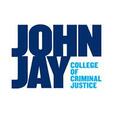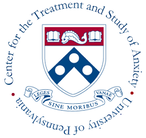My Educational Background
I earned my Bachelor of Science (Honors) in Psychology from Queen's University in Kingston, Ontario, Canada in 1994. My thesis examined the effect of race differences between eyewitnesses and suspects on eyewitness identification procedures used in police investigations.
After finishing at Queen's, I completed a Masters of Arts degree in Forensic Psychology at John Jay College of Criminal Justice - a division of the City University of New York. While at John Jay College I worked as a Research Associate for the Research Foundation at the City University of New York (my supervisor was Charles Bahn, Ph.D.). The project I worked on examined retrospective evaluations of dispute resolution processes and attempted to identify factors contributing to a positive assessment of the resolution process
My area of specialization at John Jay College, however, was the assessment and treatment of sexual offenders. As a result, as part of my clinical training, I completed an externship in the Forensic Division of the Clarke Institute of Psychiatry (which is now called the Centre for Addiction and Mental Health) in Toronto, Canada and, after completing my degree at John Jay College, I served as a consultant to the Head of the Forensic Division (Howard E. Barbaree, Ph.D.) at the Centre for Addiction and Mental Health for almost a year before deciding to return to school in the USA.
I earned my Doctoral degree in Clinical Psychology from the Graduate School of Applied and Professional Psychology (GSAPP) at Rutgers University in Piscataway, New Jersey. During my four years at Rutgers, I had the opportunity to work in a variety of clinical settings, including: The Psychological Clinic at GSAPP, the Rutgers College Counseling Center (which is now called CAPS: Counseling, ADAP & Psychiatric Services), the Rutgers Foster Care Counseling Project, the Freehold Day Program for troubled adolescents (which was part of IEP Youth Services, Inc.), the Livingston College Learning Center, the Department of Neurology and Neurosciences at the University of Medicine and Dentistry at New Jersey (UMDNJ), and the New Jersey Center for the Healing Arts.
After finishing at Queen's, I completed a Masters of Arts degree in Forensic Psychology at John Jay College of Criminal Justice - a division of the City University of New York. While at John Jay College I worked as a Research Associate for the Research Foundation at the City University of New York (my supervisor was Charles Bahn, Ph.D.). The project I worked on examined retrospective evaluations of dispute resolution processes and attempted to identify factors contributing to a positive assessment of the resolution process
My area of specialization at John Jay College, however, was the assessment and treatment of sexual offenders. As a result, as part of my clinical training, I completed an externship in the Forensic Division of the Clarke Institute of Psychiatry (which is now called the Centre for Addiction and Mental Health) in Toronto, Canada and, after completing my degree at John Jay College, I served as a consultant to the Head of the Forensic Division (Howard E. Barbaree, Ph.D.) at the Centre for Addiction and Mental Health for almost a year before deciding to return to school in the USA.
I earned my Doctoral degree in Clinical Psychology from the Graduate School of Applied and Professional Psychology (GSAPP) at Rutgers University in Piscataway, New Jersey. During my four years at Rutgers, I had the opportunity to work in a variety of clinical settings, including: The Psychological Clinic at GSAPP, the Rutgers College Counseling Center (which is now called CAPS: Counseling, ADAP & Psychiatric Services), the Rutgers Foster Care Counseling Project, the Freehold Day Program for troubled adolescents (which was part of IEP Youth Services, Inc.), the Livingston College Learning Center, the Department of Neurology and Neurosciences at the University of Medicine and Dentistry at New Jersey (UMDNJ), and the New Jersey Center for the Healing Arts.
Dissertation
My doctoral dissertation ("An examination of the impact of massed-intensive versus traditionally administered cognitive restructuring for panic disorder for panic disorder") examined the efficacy a cognitive intervention in patients with Panic Disorder when administered in either a "massed" (i.e., daily) or a more traditional (i.e., weekly) style. My dissertation committee consisted of William C. Sanderson, Ph.D. and G. Terence Wilson, Ph.D.
Clinical Internship
As part of my doctoral training, I also completed a 2000 hour internship in Clinical Psychology at the University of British Columbia Hospital, a division of the Vancouver Hospital and Health Sciences Centre (which is now called Vancouver Coastal Health), in Vancouver, British Columbia, Canada.
Postdoctoral Work
After completing my internship year in British Columbia, I headed back to the USA, where I spent my first two post-doctoral years working at the Center for the Treatment and Study of Anxiety (CTSA) at the University of Pennsylvania (directed by Edna B. Foa, Ph.D.). While at the CTSA, I was involved in studies of Generalized Social Phobia, Obsessive-Compulsive Disorder, and Posttraumatic Stress Disorder. I also served as the "Open Clinic" Coordinator - a clinic for all patients who were not eligible or not interested in participating in clinical trials and for patients who thought that they did not benefit fully from the clinical trials.




